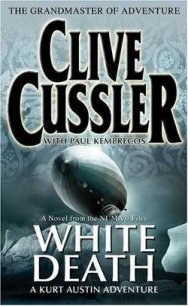The Whispering Land - Durrell Gerald (читать книги .TXT) 📗
In the bar we found the proprietor, who, with the air of one who had just suffered a terrible bereavement, reluctantly admitted that he had accommodation, and led us through dim passages to three small, grubby rooms. Dicky, his deer-stalker on the back of his head, stood in the centre of his room, pulling off his white gloves, surveying the sagging bed and its grey linen with a catlike fastidiousness.
"You know what, Gerry?" he said with conviction. "This is the stinkiest hotel I ever dream."*
"I hope you never dream of a stinkier one," I assured him.
Presently we all repaired to the bar to have a drink and await the arrival of one Captain Giri, whom I had an introduction* to, a man who knew all about the penguin colonies of Puerto Deseado. We sat round a small table, sipping our drinks and watching the other inhabitants of the bar with interest. For the most part they seemed to consist of very old men, with long, sweeping moustaches, whose brown faces were seamed and stitched by the wind. They sat in small groups, crouched over their tiny tumblers of cognac or wine with a dead air, as though they were hibernating there in this dingy bar, staring hopelessly into the bottoms of their glasses, wondering when the wind would die down, and knowing it would not. Dicky, delicately smoking a cigarette, surveyed the smoke-blackened walls, the rows of dusty bottles, and the floor with its twenty-year-old layer of dirt well trodden into its surface.
"What a bar, eh?" he said to me.
"Not very convivial, is it?"
"It is so old… it has an air of old," he said staring about him. "You know, Gerry, I bet it is so old that even the flies have beards."
Then the door opened suddenly, a blast of cold air rushed into the bar, the old men looked up in a flat-eyed, reptilian manner,* and through the door strode Captain Giri. He was a tall, well-built man with blond hair, a handsome, rather ascetic face and the most vivid and candid blue eyes I bad ever seen. Having introduced himself he sat down at our table and looked around at us with such friendliness and good humour in his childlike eyes that the dead atmosphere of the bar dropped away, and we suddenly found ourselves becoming alive and enthusiastic. We had a drink, and then Captain Giri produced a large roll of charts and spread them on the table, while we pored over them.
"Penguins," said the Captain meditatively, running his forefinger over the chart. "Now, down here is the best colony… by far the best and biggest, but I think that this is too far for you, is it not?"
"Well, it is a bit," I admitted. "We didn't want to go that far south if we could avoid it. It's a question of time, really. I had hoped that there would be a reasonable colony within fairly easy reach of Deseado."
"There is, there is," said the Captain, shuffling the charts like a conjuror and producing another one from the pile. "Now, here, you see, at this spot… it's about four hours' drive from Deseado… all along this bay here."
"That's wonderful," I said enthusiastically, "just the right distance."
"There is only one thing that worries me," said the Captain, turning troubled blue eyes on to me. "Are there enough birds there for what you want… for your photography?"
"Well," I said doubtfully, "I want a fair number. How many are there in this colony?"
"At a rough estimate I should say a million," said Captain Giri. "Will that be enough?"
I gaped at him. The man was not joking. He was seriously concerned that a million penguins might prove to be too meagre a quantity for my purpose.
"I think I can make out with a million penguins,"* I said. "I should be able to find one or two photogenic ones among that lot. Tell me, are they all together, or scattered about?"
"Well, there are about half or three-quarters concentrated here" he said, stabbing at the chart. "And the rest are distributed all along the bay here"
"Well, that seems perfect to me. Now what about somewhere to camp?"
"Ah!" said Captain Giri. "That is the difficulty. Now just here is the estancia of a friend of mine, Senor Huichi. He is not on the estancia at the moment. But if we went to see him he might let you stay there. It is, you see, about two kilometres from the main colony, so it would be a good place for you to stay."
"That would be wonderful," I said enthusiastically. "When could we see Senor Huichi?"
The Captain consulted his watch and made a calculation.
"We can go and see him now, if you would like," he said.
"Right!" I said, finishing my drink. "Let's go."
Huichi's house was on the outskirts of Deseado, and Huichi himself, when Captain Giri introduced us, was a man I took an instant liking to. Short, squat, with a weather-browned face, he had very dark hair, heavy black eyebrows and moustache, and dark brown eyes that were kind and humorous, with crow's feet* at the corners. In his movements and his speech he had an air of quiet, unruffled confidence about him that was very reassuring. He stood silently while Giri explained our mission, occasionally glancing at me, as if summing me up.* Then he asked a couple of questions, and, finally, to my infinite relief, he held out his hand to me and smiled broadly.
"Senor Huichi has agreed that you shall use his estancia" said Giri, "and he is going to accompany you himself, so as to show you the best places for penguins."
"That is very kind of Senor Huichi… we are most grateful," I said. "Could we leave tomorrow afternoon, after I have seen my friend off on the plane?"
"Si, si, como no?"* said Huichi when this had been translated to him. So we arranged to meet him on the morrow, after an early lunch, when we had seen Dicky off on the plane that was to take him to Buenos Aires.
So, that evening we sat in the depressing bar of our hotel, sipping our drinks and contemplating the forlorn* fact that the next day Dicky would be leaving us. He had been a charming and amusing companion, who had put up with discomfort without complaint, and had enlivened our flagging spirits throughout the trip with jokes, fantastically phrased remarks, and lilting* Argentine songs. We were going to miss him, and he was equally depressed at the thought of leaving us just when the trip was starting to get interesting. In a daring fit of joie de vivre* the hotel proprietor had switched on a small radio, strategically placed on a shelf between two bottles of brandy. This now blared out a prolonged and mournful tango of the more cacophonous* sort. We listened to it in silence until the last despairing howls had died away.
"What is the translation of that jolly little piece?" I asked Marie.
"It is a man who has discovered that his wife has T. B.,"* she explained. "He has lost his job and his children are starving. His wife is dying. He is very sad, and he asks the meaning of life."
The radio launched itself into another wailing air that sounded almost identical with the first. When it had ended I raised my eyebrows inquiringly at Marie.
"That is a man who has just discovered that his wife is unfaithful," she translated moodily. "He has stabbed her. Now he is to be hung, and his children will be without mother or father. He is very sad and he asks the meaning of life."
A third refrain rent the air. I looked at Marie. She listened attentively for a moment, then shrugged.
"The same," she said tersely.
We got up in a body* and went to bed.
Early the next morning Marie and I drove Dicky out to the airstrip, while Sophie and Jacquie went round the three shops in Deseado to buy necessary supplies for our trip out to Huichi's estancia. The airstrip consisted of a more or less level strip of ground on the outskirts of the town, dominated by a moth-eaten-looking* hangar, whose loose boards flapped and creaked in the wind. The only living things were three ponies, grazing forlornly. Twenty minutes after the plane had been due in there was still no sign of her,* and we began to think that Dicky would have to stay with us after all. Then along the dusty road from the town came bustling a small van. It stopped by the hangar, and from inside appeared two very official-looking men in long khaki coats. They examined the wind-sock* with a fine air of concentration, stared up into the sky, and consulted each other with frowning faces. Then they looked at their watches and paced up and down.



